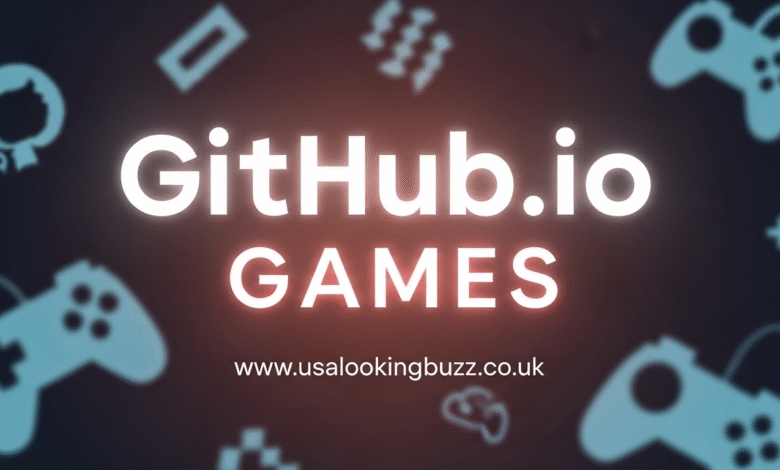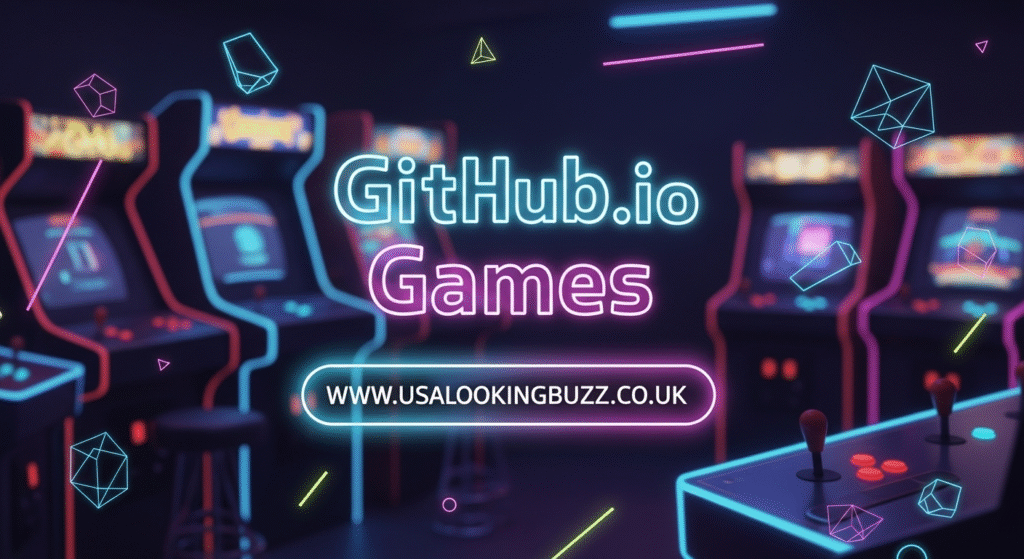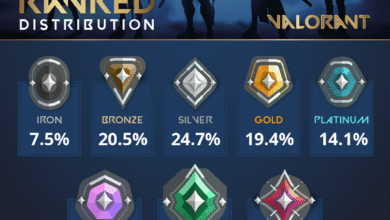Exploring the World of GitHub.io Games: A Comprehensive Guide

Introduction to GitHub.io Games
GitHub.io games are an innovative manifestation of the capabilities afforded by GitHub Pages, allowing developers to create and share interactive experiences directly from their repositories. Leveraging the power of HTML, CSS, and JavaScript, these games can be easily deployed from a GitHub account, making game development more accessible to a wider audience. This platform not only elevates individual projects but also fosters a vibrant community of developers eager to experiment and showcase their creative talents.
At its core, GitHub.io is a service that provides users with the ability to host static websites directly from a GitHub repository. This feature is particularly beneficial for gaming projects, as developers can create games that run seamlessly in any web browser. The interactive nature of these games often blurs the line between traditional web development and game design, representing a confluence of these fields. As developers utilize GitHub.io, they gain a unique opportunity to exhibit their programming skills while engaging users in a playful manner.
The significance of GitHub.io games extends beyond mere entertainment; they serve as practical learning tools for budding developers. By studying the code behind these games, individuals can enhance their understanding of programming principles, game design, and user interface (UI) considerations. Additionally, sharing projects on a public platform like GitHub encourages collaborative learning, allowing developers to receive feedback and contribute to one another’s work. Thus, GitHub.io not only acts as a launchpad for projects but also cultivates a sense of community within the broader landscape of web development and game design.
Getting Started with GitHub.io
Creating your own game on GitHub.io is an exciting journey that begins with a few foundational steps. To embark on this adventure, the first requirement is to establish a GitHub account. Visiting GitHub’s official site allows you to register for free. Upon successful registration, you will have access to numerous useful features, including repositories, collaboration tools, and community resources.
Next, you will need to create a repository to house your GitHub.io games. To do this, navigate to the repositories tab on your GitHub profile and select the “New” button. It is essential to name your repository with the format .github.io, where is your GitHub username. This naming convention allows GitHub to link the repository with its GitHub Pages feature, facilitating seamless hosting of your game. Ensure you set the repository to public so others can access your work.
Once your repository is set up, the next step is to enable GitHub Pages. Inside your new repository, click on the “Settings” tab, scroll down to the “Pages” section, and select the main branch as your source for GitHub Pages. After saving these settings, GitHub will generate a URL that directs users to your page, typically in the format: .github.io. Here, you can start uploading the necessary game files, such as HTML, CSS, or JavaScript files, all of which are crucial for functioning games on GitHub.io.
It is advisable to keep your files organized in folders and clearly label them for easy navigation. This organization ensures that both you and your users can find specific elements of your game efficiently. By following these steps, you will have successfully set up the groundwork for hosting your unique games on GitHub.io, ready to share with the world.
Popular GitHub.io Games to Try
GitHub.io has emerged as a vibrant platform for developers and gaming enthusiasts alike to share and play engaging games. Here, we highlight some of the most popular GitHub.io games that showcase innovation, creativity, and gameplay mechanics that keep players coming back for more.
One notable game is Game 1. This platformer challenges players with intricate levels that require skillful jumping and strategic planning. What sets it apart is its unique art style and the clever mechanics that allow players to manipulate the environment, making each level a fresh experience.
Another star in the GitHub.io gaming landscape is Game 2. This puzzle game tests your problem-solving abilities with increasingly complex challenges. The game features a minimalist design, allowing players to focus on the gameplay itself. Its sound design enhances the overall immersive experience, making it a noteworthy choice for those who appreciate thoughtful mechanics.
Don’t miss out on experiencing Game 3, which mixes elements of adventure and exploration. Players navigate through visually stunning worlds filled with quests and mysteries. The storyline and character development in this game engage players and invite them to uncover secrets hidden within the game’s environment.
Lastly, we recommend Game 4, a fast-paced action game where decision-making and reflexes are key. Its competitive nature allows players to challenge themselves and others, fostering a community around high scores and achievements. The constantly evolving gameplay ensures that each session feels unique.
In conclusion, these popular GitHub.io games prove that the platform is a treasure trove for gaming enthusiasts. With various genres and styles represented, there is something for everyone to enjoy and explore. Take some time to dive into these engaging titles and experience the creativity of the GitHub.io gaming community.
Building Your First Game on GitHub.io
Creating a game on GitHub.io is an exciting way to apply your coding skills while engaging with a platform that supports collaboration and sharing. To start your journey into GitHub.io games, you’ll need to familiarize yourself with essential web development languages such as HTML, CSS, and JavaScript. These foundational tools will help you structure your game, style it effectively, and implement interactive elements.
The first step is to set up your project repository on GitHub. Sign in to your account and create a new repository. Ensure that it is marked as public, so others can view your game. Once your repository is created, clone it to your local machine using Git. This action allows you to make changes and push updates to your GitHub.io page seamlessly.
Next, you can begin writing your HTML code. This will serve as the backbone of your game. Start by designing the layout, which includes headers, buttons, and a game canvas area. For example, you can set up a simple HTML structure like this:
Now that you have the basic structure, you can style your game using CSS. By applying styles, you enhance the visual appeal, ensuring a better player experience. Once your layout is in place, turn to JavaScript to add interactive elements. This can range from simple animations to complex game mechanics. You might want to check out libraries like p5.js or Phaser for more advanced functionalities.
After developing your game, it’s crucial to test and debug it thoroughly. Use browser developer tools to identify and resolve issues. Once satisfied, commit your changes and push them to your GitHub repository. Your game will now be live on your GitHub.io games page, ready for others to play and enjoy.
By following these steps, you can build and deploy your first game on GitHub.io, encouraging creativity and technical skills in the process. Explore community resources for further learning and inspiration, as these can enhance your game development journey.
Advanced Techniques in GitHub.io Game Development
The realm of game development on GitHub.io presents numerous opportunities for creators to explore advanced techniques that enrich gameplay and user experiences. One pivotal area in enhancing these games is the incorporation of game physics. By utilizing libraries such as matter.js or p2.js, developers can simulate realistic movements and interactions within the game environment. These physics engines allow for the implementation of gravity, collision detection, and other physical properties, resulting in a more immersive experience for players.
Another notable technique involves the use of APIs to expand functionality and interactivity. Integrating third-party APIs, such as those for social media or live leaderboards, can foster user engagement and community interaction. For instance, you can utilize the Twitch API to connect your game to live streaming platforms, enabling players to share their achievements in real-time. This not only enhances the game’s reach but also builds a vibrant gaming community around your GitHub.io project.
Furthermore, implementing sound effects is essential in creating a captivating atmosphere for players. Using Web Audio API or libraries like Howler.js facilitates the addition of audio elements that can significantly impact gameplay. Background music, character sounds, and environmental audio cues contribute to an engaging user experience, making the game more enjoyable and enhancing overall immersion. Properly managing sound layers and ensuring they play in correlation with game events is key to keeping players engaged.
Developers can also consider advanced graphics techniques such as WebGL for rendering 3D environments or canvas manipulation for 2D game graphics. By leveraging these technologies, creators can significantly improve the visual quality of their projects hosted on GitHub.io. These advanced techniques, when appropriately applied, can elevate the overall gaming experience, making it both distinctive and memorable.

Showcasing and Sharing Your Games
Once you have developed your game and hosted it on GitHub.io, the next essential step is to showcase and share your creation with a broader audience. Promoting your game effectively can significantly increase visibility and attract players. One of the most effective methods for showcasing your GitHub.io games is by utilizing social media platforms. Sites like Twitter, Facebook, and Instagram allow you to create engaging content that showcases the unique aspects of your game, such as gameplay videos, artwork, and updates regarding new features or releases. Engaging your audience with regular posts can help build a community around your game.
In addition to social media, consider participating in online gaming communities and forums. Platforms like Reddit and Discord offer numerous channels where indie developers and players congregate. By sharing your GitHub.io games in these communities, you can solicit feedback, generate interest, and inspire a loyal following. Ensuring that you adhere to community guidelines when promoting your work is crucial, as self-promotion can sometimes be frowned upon if not done wisely.
Another effective strategy is to collaborate with influencers and content creators within the gaming niche. Many YouTubers and Twitch streamers are always looking for new games to showcase, so reaching out for potential collaborations can expand your game’s reach. They can help introduce your GitHub.io games to their audience, providing authentic exposure and credibility.
Lastly, consider creating a dedicated website or blog for your game. This platform can serve as a hub for updates, tutorials, and additional content, drawing potential players in and encouraging them to check out your GitHub.io game. Diversifying your promotional strategies ensures a broader reach and gives your games the visibility they deserve. In summary, combining social media engagement, participation in gaming communities, collaborations with influencers, and having a dedicated website will significantly enhance the visibility of your GitHub.io games.
Feedback and Community Involvement
In the realm of game development, particularly within the github.io games landscape, feedback plays a crucial role in honing both the creative and technical aspects of a project. Engaging with players and fellow developers can offer insights that elevate the quality of a game. Constructive criticism is essential; thus, establishing a system for players to provide their thoughts and suggestions is vital. This can be achieved through surveys, discussion forums, or direct communication channels. By actively soliciting opinions, developers can identify areas needing improvement, whether those pertain to gameplay mechanics, user interface design, or narrative elements.
Moreover, the GitHub community serves as a valuable resource for aspiring and established developers alike. By participating in this collaborative environment, developers can share their projects and gather diverse perspectives. Platforms like GitHub allow for easy sharing of source code, enabling others to contribute suggestions or enhancements to an existing game. Engaging with comments and issues reported on a game’s repository helps in refining the overall user experience while also fostering a sense of community among contributors.
Furthermore, participating in GitHub discussions or joining themed game development groups can enhance the collaborative efforts within the community. Networking with other developers can lead to fruitful partnerships, where unique skills and ideas come together to produce exceptional github.io games. Addressing feedback is not merely about rectifying issues; it also serves as an opportunity to innovate and make iterative improvements that resonate with the audience. Fostering an open environment where feedback is both given and received encourages a culture of continuous learning and development, critical components for thriving in the dynamic world of gaming.
Legal Concerns and Best Practices
As game developers venture into creating and sharing their projects on platforms like GitHub.io, it is paramount to understand the various legal considerations involved. Intellectual property (IP) rights play a significant role in this context. Developers must ensure their games do not infringe on existing copyrights or trademarks. This includes using original artwork, sound effects, and code. When leveraging third-party assets, it is vital to obtain the necessary licenses or permissions, thereby maintaining respect for the original creators.
Licensing is another critical component that developers need to navigate carefully. By choosing the appropriate open-source license, developers can dictate how others may use, modify, or distribute their games. For instance, licenses like the MIT License or the GNU General Public License allow for varying degrees of freedom and restrictions, depending on the developer’s preferences and goals. Clarity in these legal terms is essential for ensuring that the software remains within the defined boundaries of usage, thus preventing potential legal disputes.
Moreover, ethical game development practices foster a supportive and respectful gaming community. Developers should be transparent about the methodologies behind their GitHub.io games, including how they collect data and interact with users. By prioritizing players’ privacy and security, developers can cultivate trust, promoting a more positive reception of their projects. Additionally, it is beneficial to engage with the gaming community, responding to feedback and fostering collaborative development. This openness not only enhances the game’s quality but also contributes to a culture of respect and ethical responsibility, which is crucial in the digital realm.
By understanding and adhering to these legal considerations, developers can create and share their GitHub.io games responsibly, paving the way for innovative yet compliant game development.
Future of GitHub.io Games
The future of GitHub.io games appears to be bright, with emerging trends in game development suggesting that the platform is likely to witness significant growth and innovation. As web technologies continue to evolve, developers are afforded new tools and methodologies that enhance their ability to create interactive experiences. Modern gaming is experiencing a shift towards browser-based platforms, which makes GitHub.io a prime location for hosting a variety of games, from simple HTML5 projects to complex multiplayer experiences.
One of the major trends influencing the future of GitHub.io games is the rise of collaborative development. The GitHub ecosystem encourages collaboration, allowing developers to share code, ideas, and resources seamlessly. This trend aligns well with the ethos of open-source development, further fostering a community where members can contribute to each other’s projects. As more developers utilize version control and collaboration tools integrated into GitHub, it is likely that we will see an influx of innovative games and applications on GitHub.io.
Moreover, advancements in cloud computing and web technologies will play a crucial role in shaping the way games are created and shared. Technologies such as WebAssembly can enhance performance, enabling more complex calculations and graphics rendering directly in the browser. Additionally, the growing availability of high-speed internet will facilitate smoother gameplay experiences for users accessing GitHub.io games from different locations around the globe.
In this evolving landscape, developers must stay ahead of the curve by continuously learning and adapting to new tools and technologies. Engaging with the vibrant community on GitHub, participating in forums, and contributing to open-source projects can provide valuable insights. This proactive approach will not only help developers refine their skills but will also position them to leverage the full potential of GitHub.io for game development in the future.


